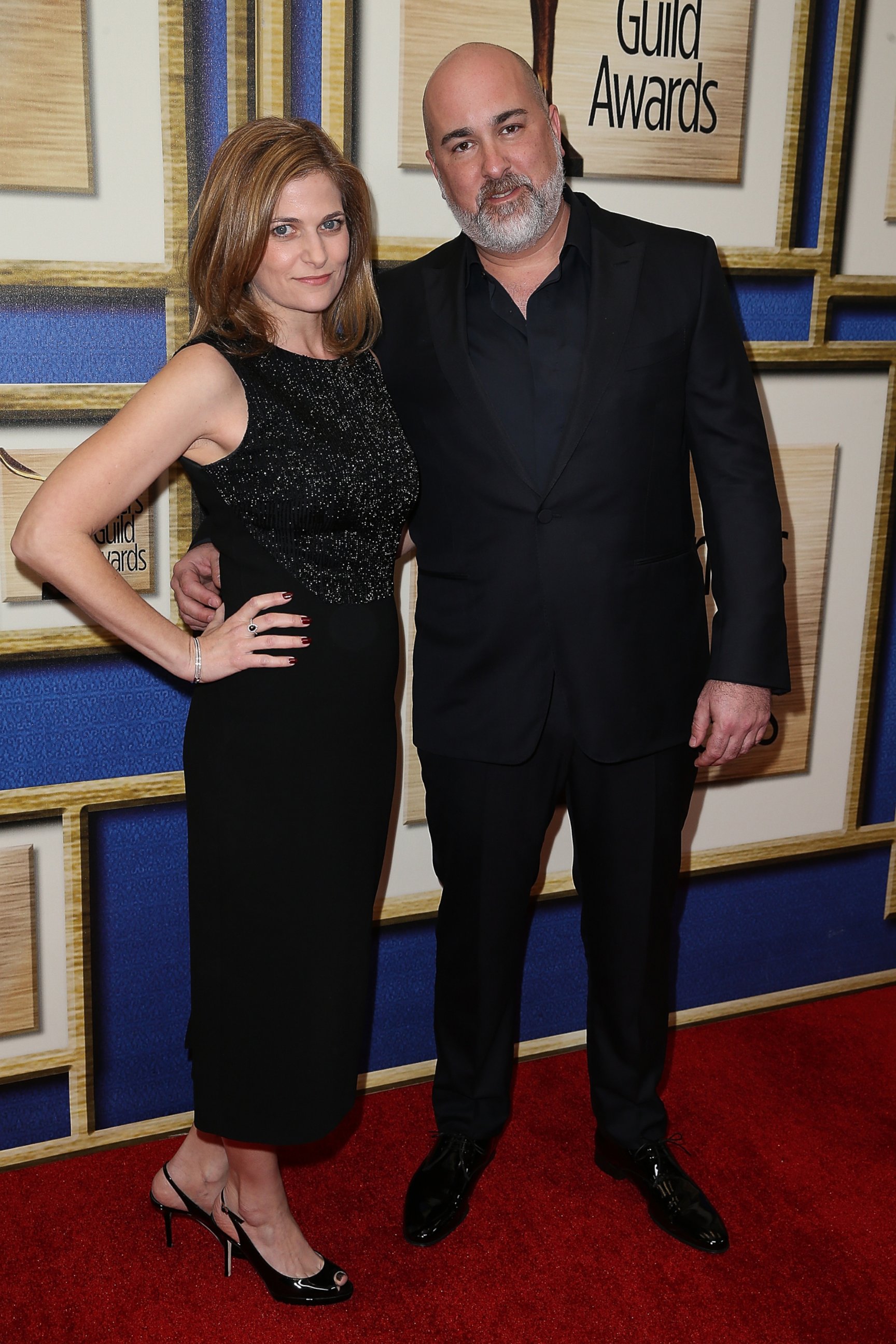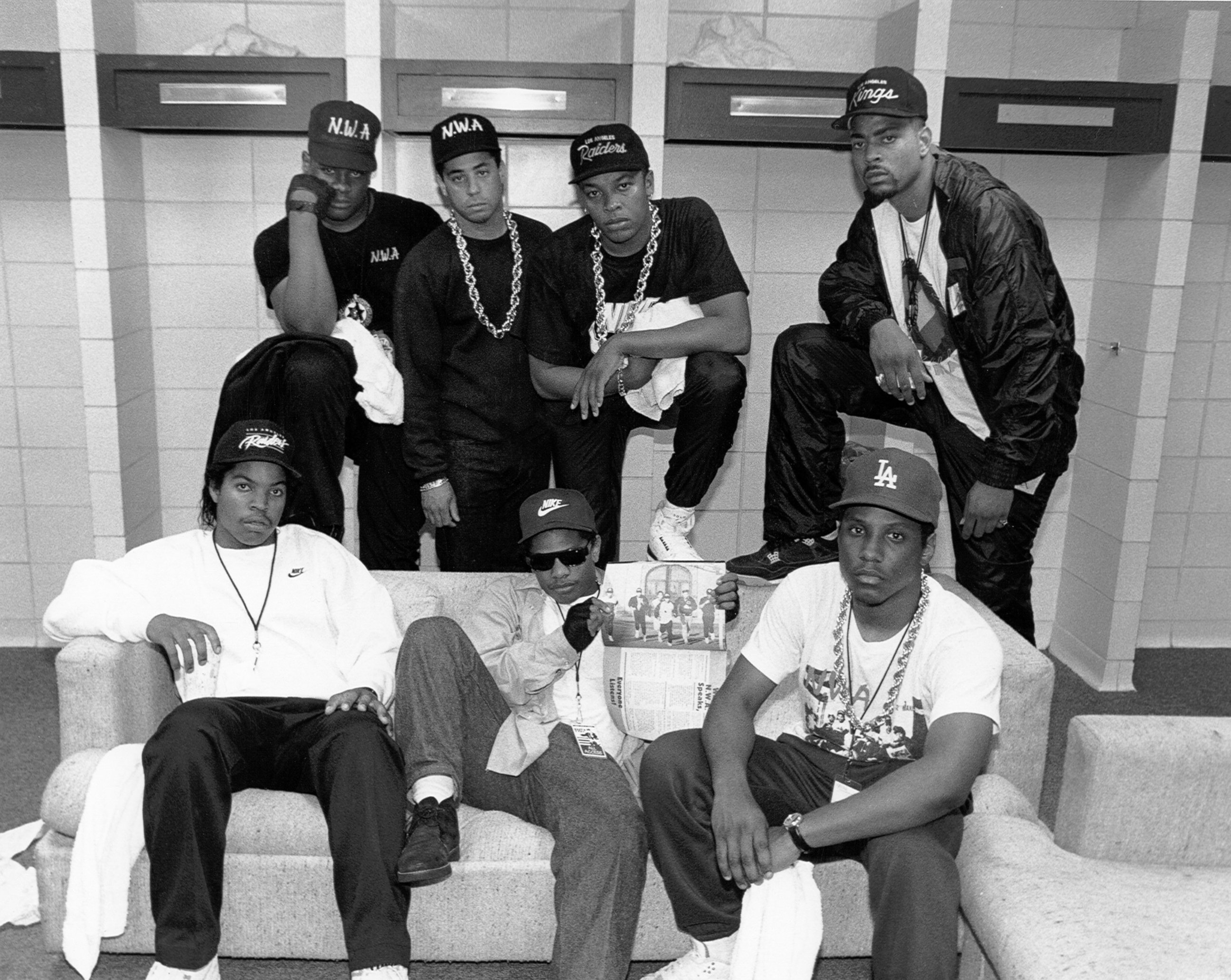'Straight Outta Compton' Writers: Studios Shouldn't Be Afraid to Make Minority Movies
"Minorities, police abuse, dehumanization; all of that can be commercial."
— -- Note: This interview is with screenplay writers Jonathan Herman and Andrea Berloff for "Straight Outta Compton." Other writing credits for the film, according to IMDB include S. Leigh Savidge and Alan Wenkus for influencing the "story."
Jonathan Herman and Andrea Berloff said they hope their Oscar nomination for "Straight Outta Compton" can be part of a catalyst for change within the film industry.
The two writers received the news of a lifetime last month when their work earned a well-deserved nod for Best Original Screenplay. This recognition came amid a year where the lack of diversity at the Academy Awards was just as big a topic of conversation as the honors themselves.
There were no actors or actresses of color in the four main, solo categories, and "Compton" was noticeably missing from the Best Picture category to the chagrin of the writers. Herman thinks the issue is much more systemic than an awards show.
"The fact that ["Compton"] was successful proves studios can make movies like this and it can reach an audience," Herman told ABC News. "They don't have to be afraid to make them or think this is too niche or too dark or too political. Stories about minorities, police abuse, dehumanization -- all of that can be commercial. These topics don't have to be something studios are scared of."
Herman said he and Berloff were already amazed at how well received the movie was when it hit theaters last summer, but that the Oscar nod "was the icing on the cake."
"I was stunned at the nomination," Berloff exclaimed. "I always believed in the script. ... We all thought it would be successful, but we had no idea it would be as big as it was."

The movie exploded with a $60 million opening weekend in August and finished with well over $200 million worldwide in total gross. The budget of the film was just $28 million.
"It would have been extra special if the movie itself was nominated, it was getting nominated for all of the Guild awards," Herman said of the Oscar snub for Best Picture. "That obviously upset a lot of people, not just in the movie but in the general populous ... We are just glad the movie could be recognized in some way. The ongoing questions the film provokes that are still being discussed now [because of the nod]. It's really good the conversation can be elongated in this way."
The two acclaimed writers were also the subject of conversation, considering their background is very different from the characters depicted in the film about gansta rap.
"There were maybe some people who right after the nominations came out, they made fun of us as these white writers of this black movie," Herman said. "We were like, 'Oh God, is it going to be like this?' But then the conversation became more rational and people have been asking interesting questions. They have been giving us a chance to talk about this stuff. It's not ridicule, it's just them waiting to hear what we think. I think it's mostly positive."
Berloff completely agrees with her co-nominee.
"People of color and women are not getting hired in Hollywood, therefore their stories are not getting made, therefore not getting nominated," she said.
She added that any exposure for "Compton" is a "great opportunity for us to talk about, not only the film, but also the issues the film brings up. There is still so much racism in our society, we can continue to talk about those things. ... Use this controversy, or faux controversy, to talk about the real issue. Talk about the real issues of why the Oscars turned out so white."
Almost a Slow, Painful Death
The script for "Straight Outta Compton" almost took half a decade to get right, and the movie almost fell by the wayside.
"In 2009, New Line bought a package that included Ice Cube's life rights, rights to the music and essentially an Eazy-E biopic," Berloff said. "All parties at that time agreed that they wanted to do N.W.A. movie instead. They hired me to write that. I worked on that for over 3 years and it sort of died a sad death, as these things do ... it wasn't going to get made there."
She said Universal Pictures eventually stepped and decided to make it. They then hired Herman to work with Berloff.

The two writers both explained that most scripts actually die after being bought.
"Studios are just happy to pay for them" and let them die, Berloff added, noting she had heard that "only 5 percent of scripts that studios pay for actually get made. There are a lot of working writers in town who haven't had movies made in the last few years."
Berloff made a name for herself in 2006 after she wrote "World Trade Center." She hadn't had a movie out until "Compton," but that doesn't mean she wasn't working consistently as one of the top writers in Hollywood.
"Three of the scripts I wrote during that time will be made and will be out within a year," she said. "It just takes a while to get a movie made. This is what it is being a screen writer."
First Time's the Charm?
For Herman, he's been working in the film industry for almost 20 years, but "Compton" is his first major motion picture that he's written.
"I was a PA, I was an assistant, I worked in development," he explained. "It's certainly gratifying. There's a lot of hard work that went into it. ... I don't think there's any writer who didn't have some dark moments before actually making it work. There certainly were times I was struggling and then asking how long do I want to be broke and struggling to do this one thing I really want to do. I was able to come through with the support of my parents. They believed in me, a lot of people don't have a safety net like I had. But it wasn't going to last forever."
In fact, Herman said he always believed in his writing, but the long wait did take its toll.
"I love movies so much," he said. "Every time I read scripts, I'd be jealous and angry, thinking I could do that. It took a while, but think I always wanted to do this ... to tell stories in this medium was the right fit. I'm glad it worked out cause I don't know what the heck else I could be doing."
For Berloff, her road to Oscar-nominated writer was a different one.
She started out in theater, then found her way to Los Angeles to pursue acting. "It wasn't clicking, wasn't working. My husband said, 'Just get up every day and do something creative.' He encouraged me to get up and write. I said, 'I should write a screenplay.' I got a book, how to write a screenplay in 21 days, and that was the sum total of my knowledge."
She added, "I wrote one movie and wrote a second movie, and that sold. Then, I found myself with a screenwriting career."




